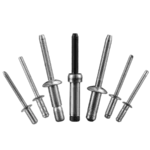Table of Contents
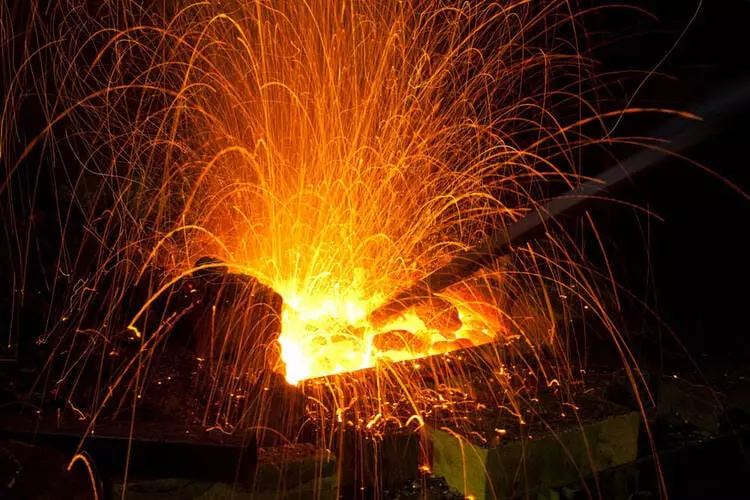
Heat-treated rivets are often used in applications with high quality or special requirements. This treatment ensures that the original heat properties of the rivet are maintained and also enhances the desired benefits. Let’s explore it together!
Table of Contents
What Are Heat Treated Rivets?
In order to meet the specific needs of the application, some blind rivets require specific heat treatment processes to enhance their mechanical properties. The internal structure of the rivet is altered through heating, holding and cooling steps, resulting in superior performance in terms of hardness, strength, toughness and wear resistance.
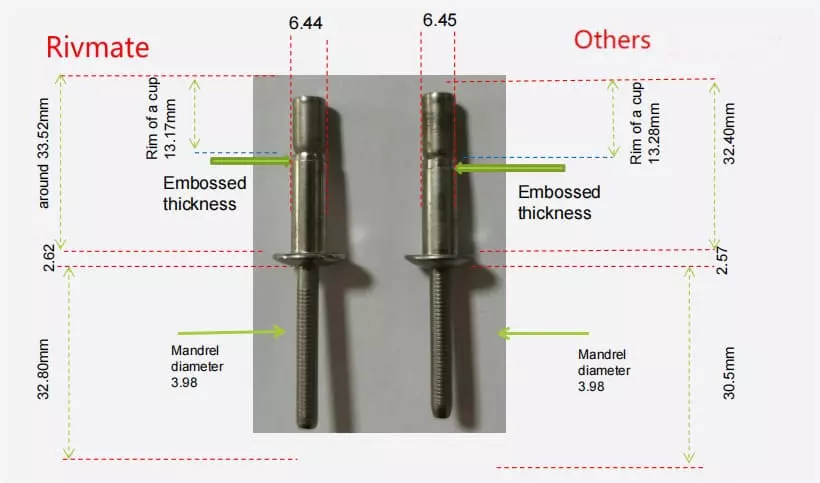
For example, in aerospace and automotive manufacturing, they have higher requirements for strength and lightweighting of rivets, so they heat treat aluminum rivets to improve strength.
Advantages of Heat Treated Rivets
Heat treatment is an essential part of the production process of blind rivets in order to fulfill some specific needs. There are many significant advantages that can be gained by heat treating rivets, which greatly enhance the mechanical properties and reliability of the rivets. The following are some of the major benefits that come with heat treating rivets:
1. Increase the Hardness and Strength of Rivets
Rivets are heat-treated to increase hardness and tensile strength by changing their internal crystal structure. How does this process work?
First, the rivet is heated above its austenitizing temperature to transform the internal structure of the metal into austenite. The rivet is then cooled rapidly so that the austenite is rapidly transformed to martensite. To avoid an overly brittle martensitic structure, rivets may be tempered or aged, heated at lower temperatures to improve toughness while maintaining high hardness and strength.
This approach is typically applied to high-strength steel rivets and aluminum blind rivets. In the automotive and aerospace sectors, heat treatments are often used to improve the hardness and tensile strength of automotive rivets.
2. Enhanced Wear Resistance
Rivets will inevitably wear out during use, so we need to improve the wear resistance of rivets.
In the heat treatment process, there are several steps to improve the wear resistance of rivets. For example, quenching can rapidly improve the surface hardness and wear resistance of rivets. Induction hardening and carburizing can form a hardened layer on the surface of the rivet while maintaining a pliable structure inside. This structure provides good wear and impact resistance.
In addition to this, annealing or normalizing in the heat treatment process reduces peripheral defects and inhomogeneities in the surface of the material. This can effectively improve the surface smoothness and make it more uniformly wear-resistant.
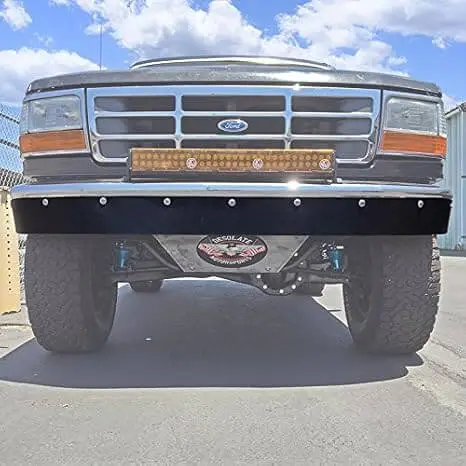
What applications will increase the durability of rivets? If your project is one that needs to withstand long-term friction and use in areas such as the automotive industry (e.g., body and chassis), construction work (steel beams and braces), and heavy machinery, then the rivets you purchase will need to have an enhancement for wear resistance.
3. Improved Fatigue Resistance
What is fatigue resistance of rivets? Fatigue resistance of rivets refers to the ability of rivets to resist material fatigue failure under repeated dynamic loads or cyclic loads. This metric is important in applications subjected to vibration, shock or cyclic loading.
So how does heat treatment improve the fatigue resistance of rivets? The fatigue resistance of a rivet is primarily related to the material, size, surface finish and stress concentration of the rivet. Heat treatment can be used to release and equalize internal stresses by annealing or tempering. This results in a more uniform stress distribution and fewer stress concentrations, which improves the fatigue resistance of rivets under cyclic loading.
When heat treatment is used in combination with surface hardening (induction hardening, carburizing), the surface of the rivet can be made harder, which greatly improves the rivet’s resistance to fatigue crack initiation.
4. Increase the Toughness of Rivets
If a rivet has qualified toughness, it can absorb energy when subjected to impact or load without fracture or brittle failure. In aerospace, automotive and construction, rivets are often required to have good toughness.
Rivet manufacturers often use annealing, quenching and tempering in heat treatments to enhance the toughness of rivets. Annealing makes rivets softer and more impact resistant, making them ideal for applications that require high toughness rather than extreme strength. The “quench and temper” process balances the toughness of the rivet with the hardness of the rivet, giving the rivet a high degree of impact resistance along with high strength.
5. Improvement of Corrosion Resistance
Heat treatment itself does not directly improve the corrosion resistance of rivets, but it can improve corrosion resistance by changing the microstructure of the rivet material and forming a protective oxide layer.
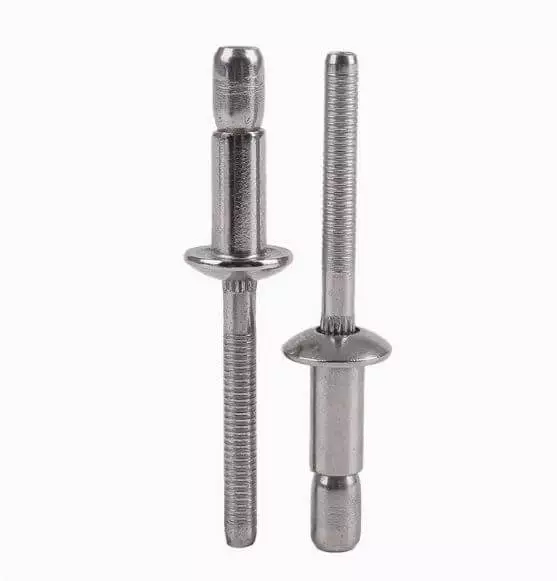
Heat treatment removes the magazine elements (sulfur and phosphorus) from the metal material that tend to cause corrosion, resulting in a purer metal structure of the rivet and reducing the potential for corrosion. In addition to this, oxidizing heat treatments can form a dense oxide film on the surface of the rivet, especially on materials such as steel or stainless steel. This oxide film acts as a physical barrier, organizing the entry of corrosive substances (moisture, salt) into the metal.
6. Elimination of Internal Stress
Residual stresses are formed inside the rivet due to plastic deformation, thermal expansion and contraction during the manufacturing process of the rivet. This stress may cause the material to deform, crack or fracture during use.
So how does heat treatment solve this problem? Heat treatment heats the rivet to a temperature where the atomic activity within the metal increases and the material begins to recrystallize and recover, this is where the internal dislocations and deformations will begin to reorganize. The cooling rate is then controlled to prevent the rivet from re-accumulating new internal stresses due to the sudden drop in temperature, ensuring a uniform internal structure.
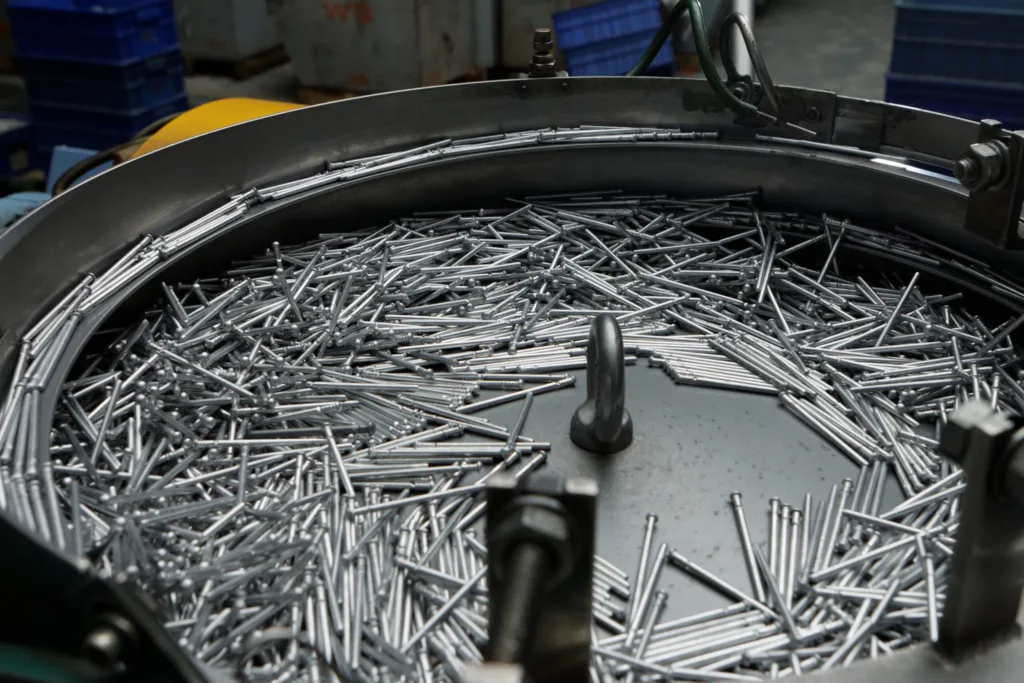
Contact Our Engineers Today
We provide you with high quality rivets, including customized services.
What Rivets can be Heat Treated?
Most metal rivets can be heat treated to enhance performance. Whether or not a rivet needs to be heat treated depends on the needs of your project. Generally, when a rivet is heat treated, its strength, hardness, fatigue resistance, toughness and corrosion resistance will improve. Rivets used in aerospace, construction and bridges, marine engineering and high-temperature equipment have a greater need for heat treatment. Below are a few common types of metal rivets that are heat treated.
In aerospace and automotive manufacturing, engineers often seek lighter overall weight. That’s why aluminum blind rivets are widely used. But there’s a problem with aluminum; although it’s light, it’s not strong enough. Therefore, rivet manufacturers use heat treatments to enhance the hardness and strength of aluminum rivets.
Titanium Rivets
Titanium rivets are typically used in applications where high strength and corrosion resistance are required. However, the strength of titanium alloys is not sufficient for all applications. Therefore, heat treatment is used to improve the strength, fatigue resistance and corrosion resistance of titanium rivets.
Carbon and alloy steel rivets will be used in structural joints that require high stiffness and durability. Hardening and tempering increases their hardness and wear resistance, effectively preventing carbon steel rivets from breaking under high stress conditions.
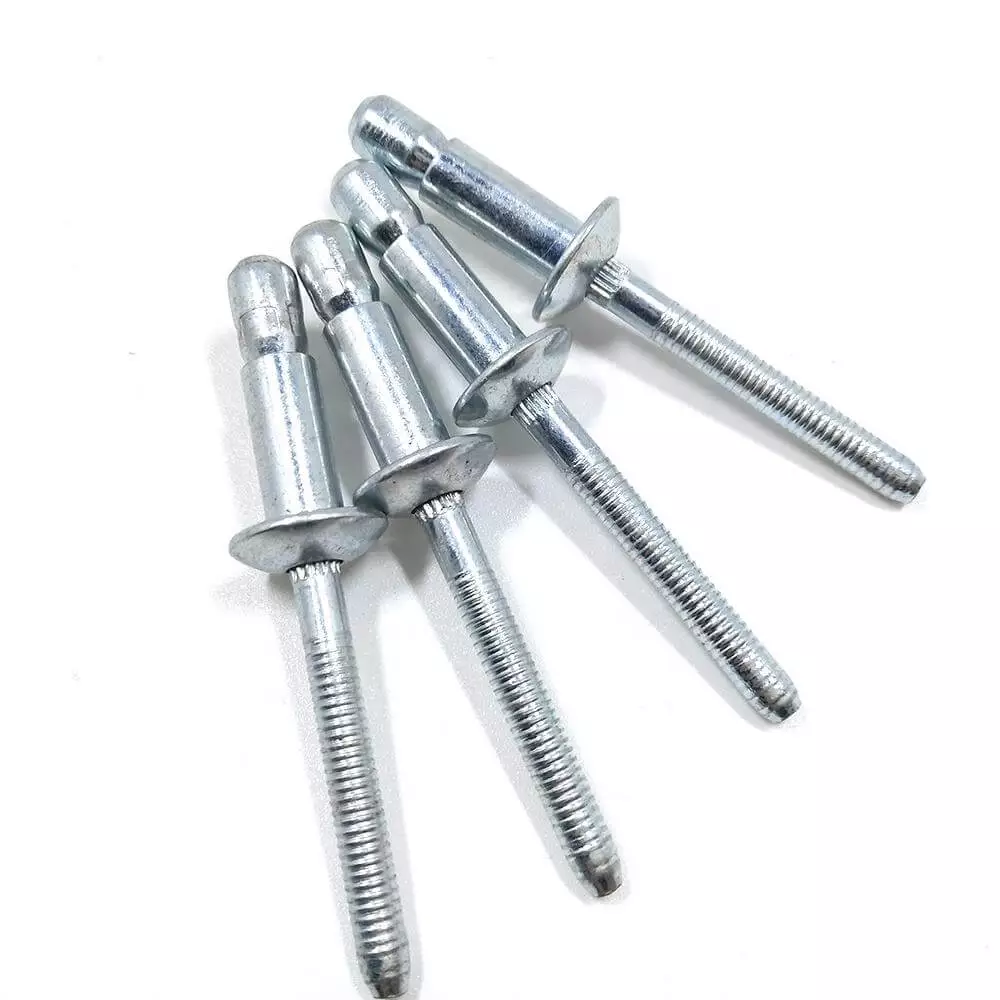
Stainless steel materials commonly used in the manufacture of blind rivets are 304 and 316 stainless steel. In some cases, annealing is used to improve ductility, stress and corrosion resistance.
Special Alloy Rivets
Specialty alloy rivets generally include monel rivet and inconel rivet. these specialty materials are used for fixing in extreme environments and require heat treatment to optimize their mechanical properties. For example, annealing or age hardening is used to improve tensile strength and corrosion resistance.

Contact Our Engineers Today
We provide you with high quality rivets, including customized services.
Alloy 2117 aluminum rivets typically do not require additional heat treatment by the user, as it is solution treated and naturally aged during the manufacturing process. This means that it leaves the factory with the proper mechanical properties and is ready to use.Alloy 2117 is referred to as a “ self-curing rivet ” because of its ability to age naturally at room temperature, gradually increasing in strength over time to achieve the desired hardness and strength.
Process background for heat treatment
- Solution Treatment in Production: During the manufacturing process, Alloy 2117 rivets are solution treated by heating to high temperatures to fully dissolve the alloying elements in the aluminum matrix, followed by rapid cooling to a supersaturated solid solution state.
- Natural aging: After solid solution treatment, 2117 rivets are naturally aged at room temperature, and after a certain period of time, their strength and hardness will gradually increase. This self-hardening feature eliminates the need for additional heat treatment by the user.
Does it require heat treatment by the user?
- No additional heat treatment is required: In most cases, Alloy 2117 rivets can be used in applications without the need for secondary heat treatment by the user.
- Exceptions: In some cases where higher strength or rapid achievement of optimum performance is required, artificial aging may be considered to accelerate the hardening process. This is not common in standard applications.
Custom High Quality Heat Tredted Rivets from Rivmate
Are you in need of consistent quality heat treated rivets for your project? Are you looking for a reliable rivet manufacturer? Don’t worry, you can get it all at Rivmate!
Rivmate is an IATF 16949 qualified rivet factory that can provide reliable and professional rivet solutions. Contact us for samples now!


